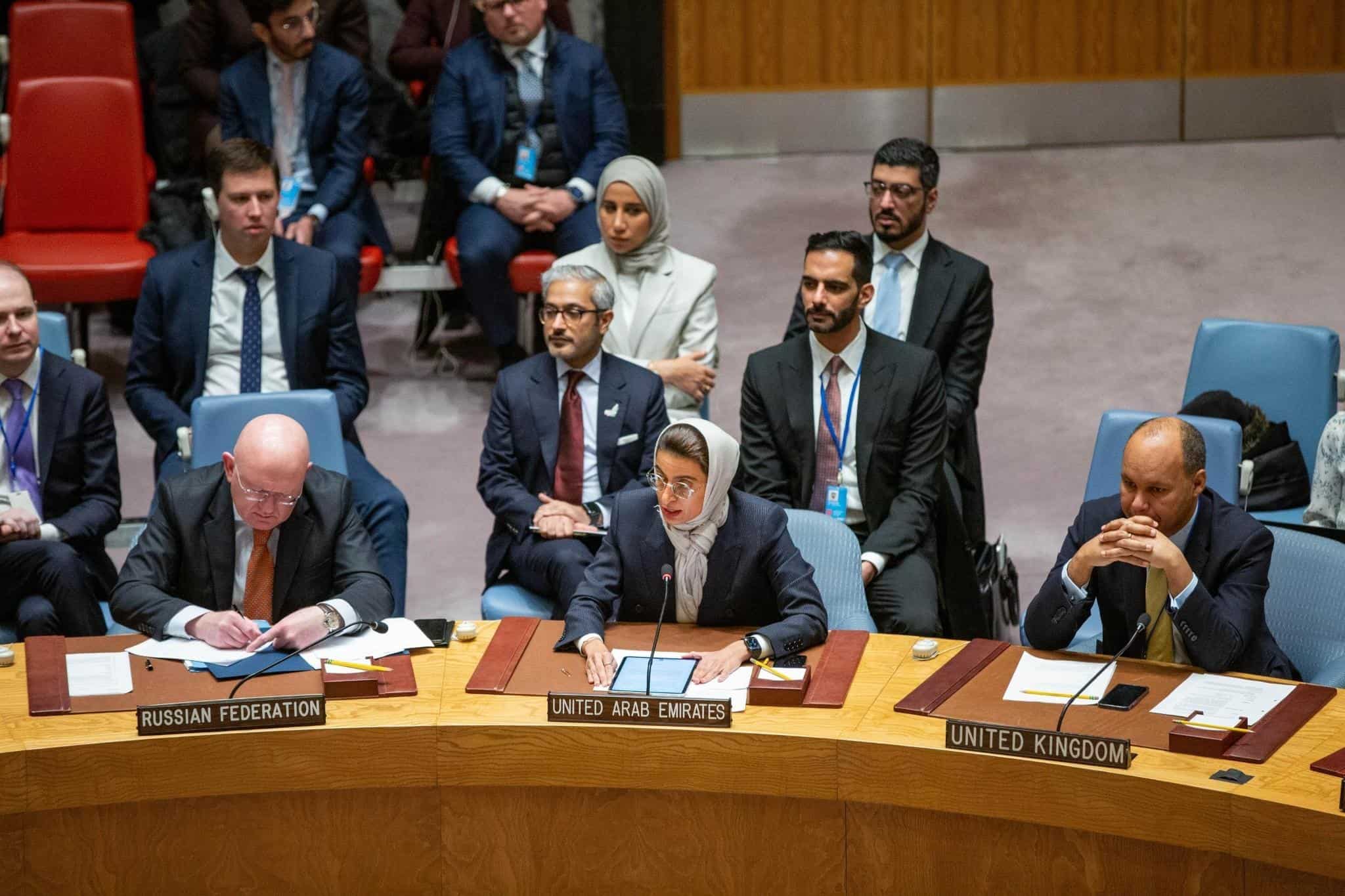NEW YORK, United States — Noura Al Kaabi, Minister of Culture and Youth, recognized the achievements of multilateralism while representing the UAE in two successive high-level United Nations Security Council meetings organized by the Republic of India’s presidency.
In an open debate on reforming multilateralism, the minister reviewed the UN’s track record of achievements and underscored the need to conduct comprehensive reforms to ensure that the organization is equipped to respond to global crises and emerging challenges.

She explained that the starting point for the reform process is by ensuring equitable representation in international decision-making. The minister referred, in particular, to the persistent under-representation of Arab and African states and reiterated the UAE’s endorsement of India’s bid for a permanent seat.
She continued: “Reform will not be easy; a serious results-oriented process will require us to make deep concessions and agree to difficult compromises. Many past efforts have failed or stalled for precisely that reason.”
In a meeting following the open debate, Al Kaabi thanked Subrahmanyam Jaishankar, India’s Minister of External Affairs, for effective cooperation with the UAE in line with the two countries’ expanding strategic and comprehensive partnership. The two sides also explored opportunities for cooperation during India’s G20 Presidency.
During the 15 December meeting on counter-terrorism, Al Kaabi highlighted the measures the Security Council has taken to address the threats of terrorism and extremism. The minister cautioned that, despite these efforts, the global terrorist threat continues to evolve.
“We have made great strides in our path towards strengthening international cooperation, building capacities, and developing effective strategies and means to combat terrorism,” she said. However, she explained that “it is no longer acceptable for the Council to focus on certain terrorist groups to the exclusion of others, especially considering the transnational nature of terrorist threats.”
She called on the Security Council to expand its attention to the geographical scope of terrorist activities and reiterated the UAE’s intention to support the Delhi Declaration. She also called on all countries present to address the root causes of extremism by spreading awareness of and respect for the principle of tolerance.
In this context, the minister shared with the Council that the UAE’s approach is based on “a comprehensive framework to counter extremism.” She noted that this includes rejecting all attempts to distort and exploit Islam by raising awareness that tolerance, peaceful coexistence, and celebrating diversity are inherent values in Islamic culture.
“The UAE’s public and private institutions have launched several initiatives, in cooperation with regional and international partners, to eliminate extremism in a sustainable manner,” she said. During her visit, Al Kaabi also attended a lunch, hosted by Dr. Jaishankar, for members of the Security Council and Secretary-General Guterres. She also met with Ambassador Ramses Joseph Cleland, Acting Chief Director of the Ministry of Foreign Affairs of the Republic of Ghana. She concluded her visit with a tour of the UAE’s Permanent Mission and met with members of the delegation and staff.








